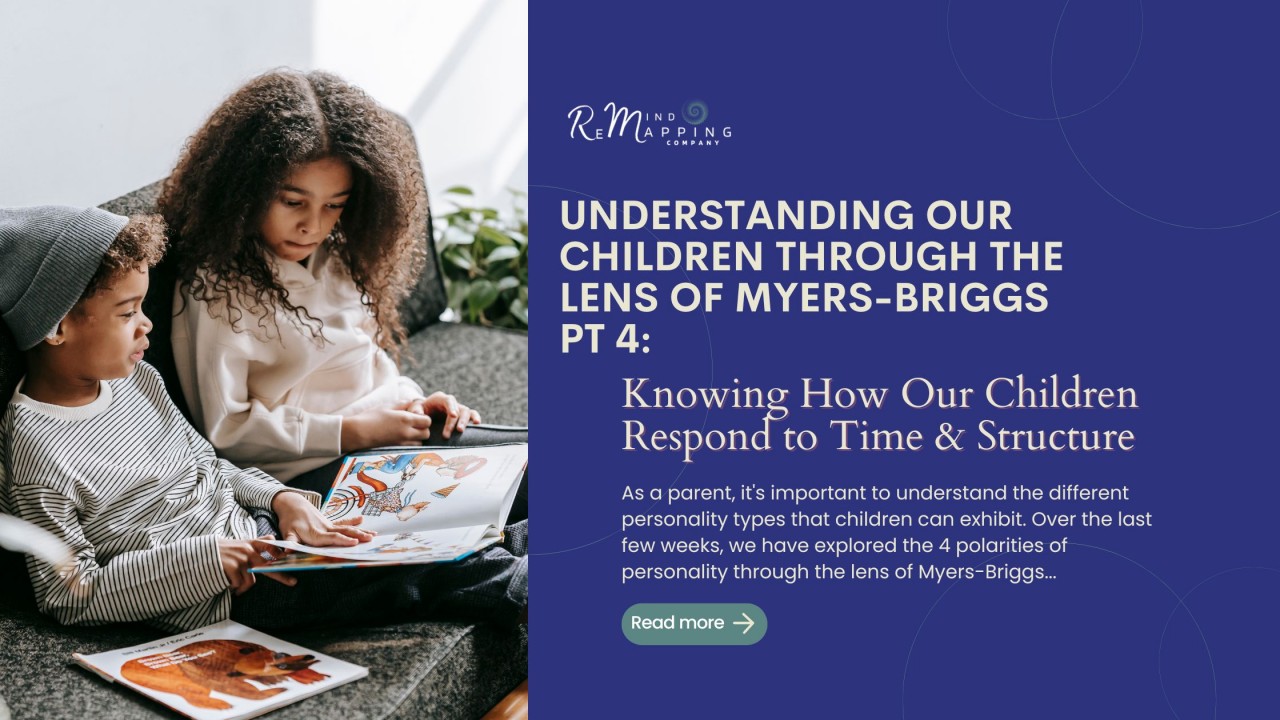(404) 793-0011 | drmaiysha@drmaiysha.com
Understanding Our Children Through the Lens of Myers-Briggs Pt 4: Knowing How Our Children Respond to Time & Structure
As a parent, it's important to understand the different personality types that children can exhibit. Over the last few weeks, we have explored the 4 polarities of personality through the lens of Myers-Briggs. (Click to Listen to the first podcast in this series now).
The last two of these types that we will discuss are the Judger and the Perceiver. While both types are important and valuable, they have different strengths and weaknesses that can affect how they navigate the world. This particular category describes how we interact with time and structure. While one tends toward a more structured and organized existence, the other is more fluid and flexible with time. Let's explore first the judger child.
Judger children are characterized by their need for structure and routine. They prefer to have a plan and stick to it. They like to keep things organized and tidy. Because judger children are very organized, they often can manage a large tasks with less supervision. Once they have figured out the structure or routine, they need to make thing happen, they will just do it. The downside is that they can be perfectionists and can sometimes be hard on themselves when they make mistakes. Because of their organization, they have a high need for closure, and they can become anxious or upset when things don't go as planned. As a parent, it's useful to acknowledge the strength of the judger's organized ways, while cultivating their ability to be flexible and spontaneous at times. One trick I use with my son who is very structured is to give him some lead time before transition. This softens the resistance to transition.
Perceiver children, on the other hand, tend to be more spontaneous and flexible. They like to go with the flow and may resist being tied down to a strict schedule. Perceiver children are often imaginative and creative, and they enjoy exploring new ideas and experiences. They are the children you will see start many tasks, but perhaps not completing any of them. This is one of the opportunities for growth with Perceiving children. They may struggle with completing tasks or following through on commitments, and they are easily distracted by new possibilities. For this reason, perceivers may need to be hand held a bit when given a big task, as they can get overwhelmed due to their natural lack of tendency for structure and organization. The positive for perceivers, though is that they are very flexible and adapt well to change, and organization can be taught. Introducing perceivers to lists and alarms will help them to be able to break down and structure large tasks, and keep track of time when doing them. It's important to note that these are not binary categories. Children may exhibit traits of both a Judger and a Perceiver, or they may lean more heavily towards one or the other depending on the situation. It is also useful to know that their tendencies may change with different situations. Even if you have a child who leans heavily in one direction or the other, you as a parent can teach them the skills they need to become more balanced and flexible in their relationship to time and structure.
Remind your judger child that making mistakes is a normal part of life. Help them learn to adapt to changes and unexpected events by encouraging them to develop hobbies or interests that allow them to relax and let go of their need for control.
Help your perceiver child develop strategies for staying focused and on-task, and to teach them the value of planning and organization. You can still encourage their creativity and to provide opportunities for them to explore their interests while giving them a bit more structure.
Most importantly, In order to do help our children be more balanced and flexible in their relationship to structure, we must cultivate it ourselves. Flexibility of behavior and learning to navigate our internal limitations so we can empower ourselves our children is one of the main reasons parents love coming to our NLP trainings. Many of the students that attend our trainings to become an NLP Coach are also parents as well. In the training, we teach you how to map the same language tools you might be using in business, therapy, or leadership onto your personal life as a spouse and parent. At the end of the day, we are models for our children, and more than understanding their tendencies, it is useful to understand our own so that we can be better models for them, and empower them to be resilient and their authentic selves.
Join our NLP community. Learn more about our next NLP training. Expand your listening capacity, learn trauma-informed communication, help your children, clients, or loved ones navigate challenges with ease. Go to www.mindremappingacademy.com to learn more about our trainings or visit www.remapmymind.today
To Schedule a NLP Training interest Today.
Stay Informed
When you subscribe to the blog, we will send you an e-mail when there are new updates on the site so you wouldn't miss them.





Comments